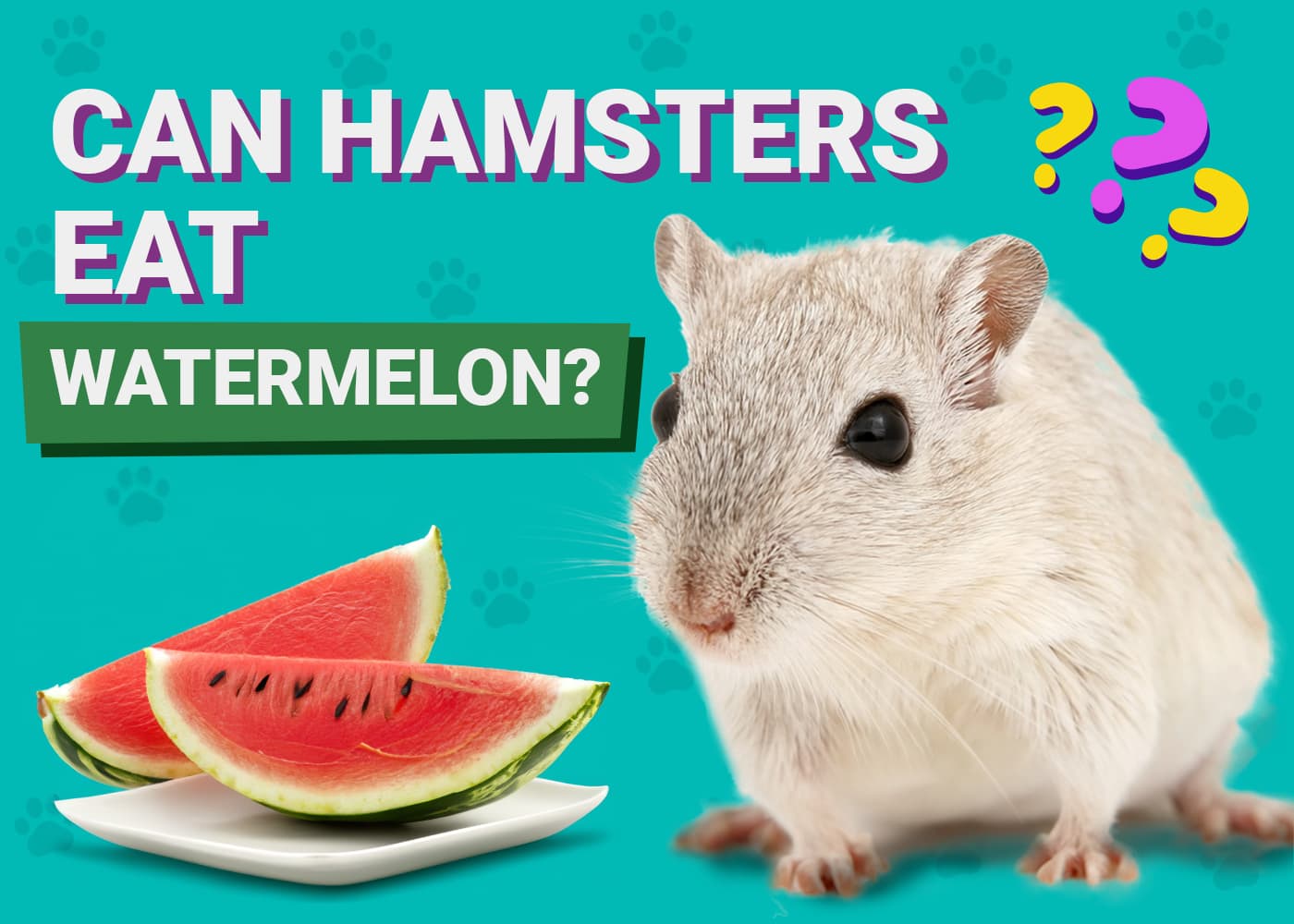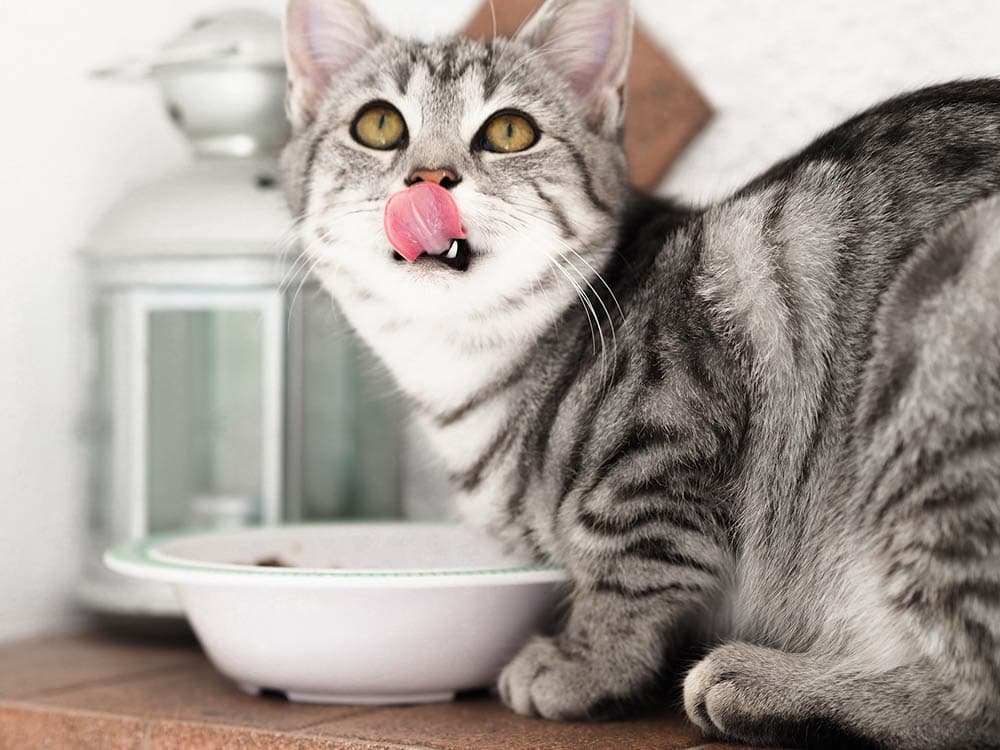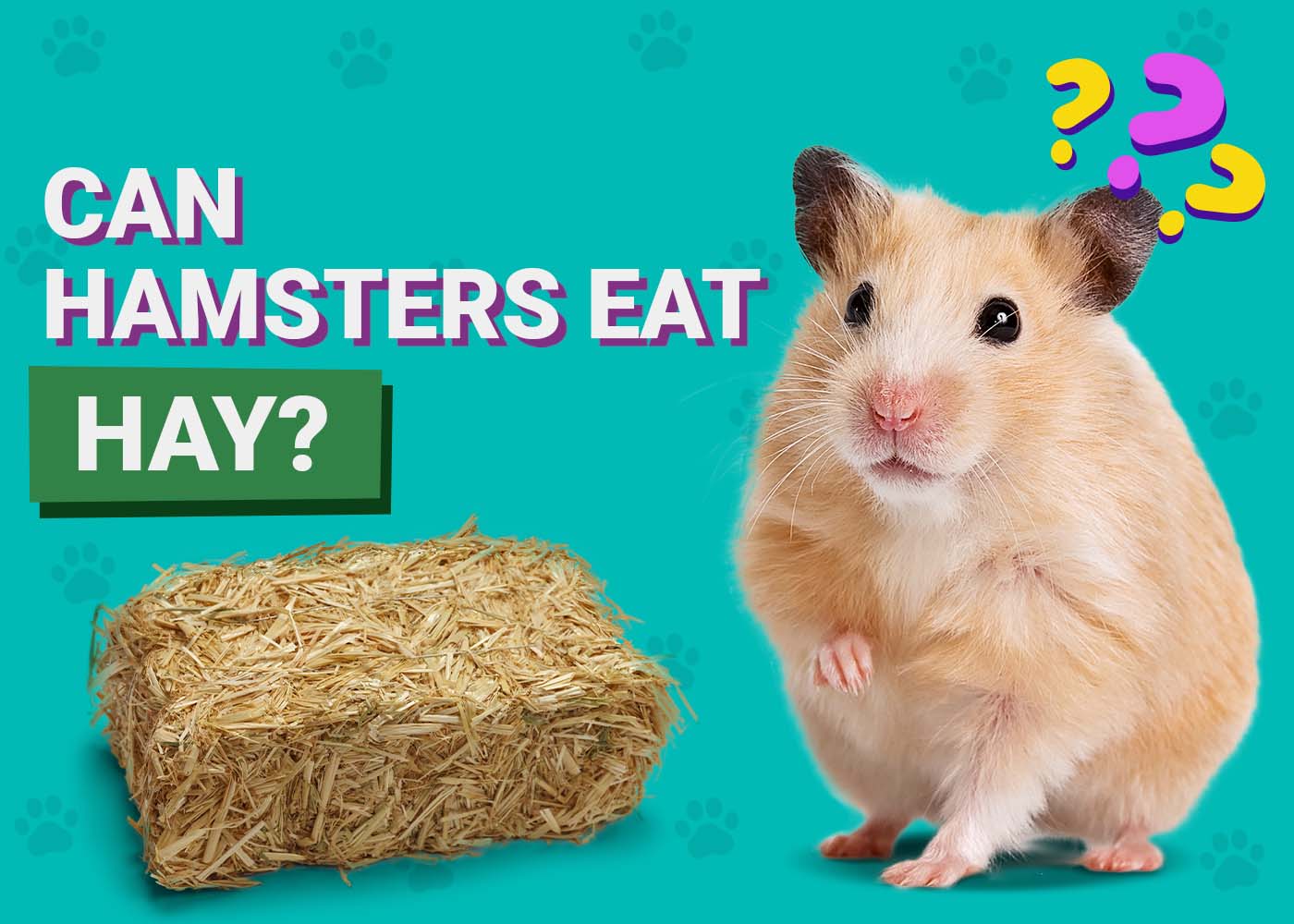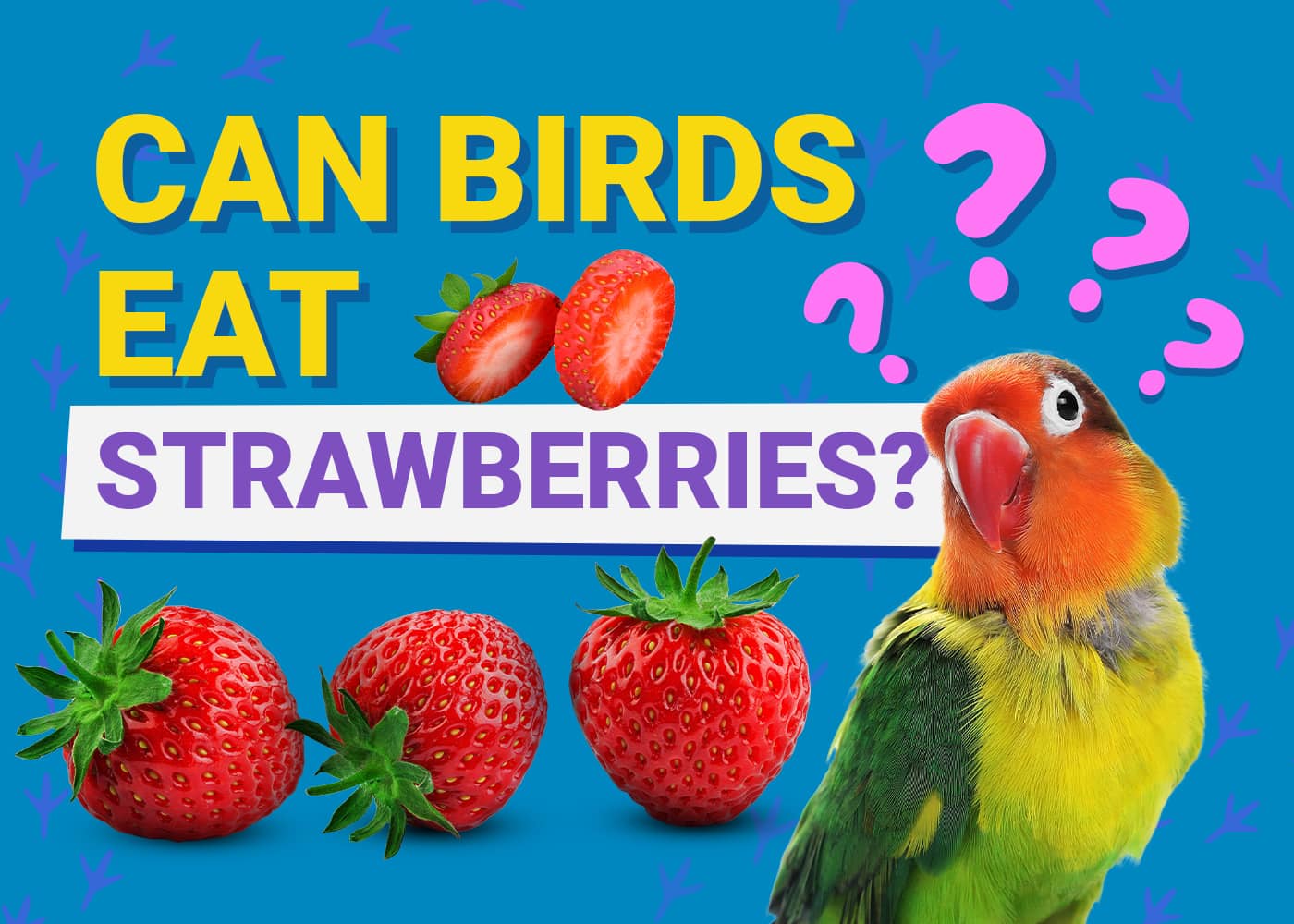VET APPROVED

The information is current and up-to-date in accordance with the latest veterinarian research.
Learn more »Click to Skip Ahead
Watermelon is a refreshing fruit that is the perfect summer treat for us humans. But is it safe to feed it to your hamster? Yes, it is! All kinds of hamsters, including dwarf, robo, and Syrian hamsters, can safely consume watermelon in moderation.
If you want to learn more about the health benefits of watermelon for your hamster, how much you should feed them, and what parts of a watermelon they can safely eat, keep reading to learn more.

Watermelon Health Benefits
The watermelon truly lives up to its name because it’s over 90% water! As expected, this fruit is also low in fat1.
- Water: 91.4 grams (g)
- Carbohydrates: 7.55 g
- Fat: 0.15 g
- Protein: 0.61 g
- Fiber: 0.4 g
- Calcium: 7 milligrams (mg)
- Phosphorus: 11 mg
- Potassium: 112 mg
- Magnesium: 10 mg
The various vitamins and minerals found in watermelon can be used by hamsters for just about everything: immune system function, gut motility, vision, growth, and metabolism. However, there are other, healthier food alternatives that offer similar benefits.
Watermelon is low in oxalates and contains minimal numbers of goitrogens. Having these compounds in low quantities is a desired trait of foods for your hamster.
Most hamsters also love the taste of watermelon, possibly because it contains sugar. Still, it’s important to note that their taste buds aren’t as acute as ours, so while anecdotal evidence suggests that they do enjoy watermelon, it might not be solely because of its taste.

Possible Risks of Feeding Watermelon to Your Hamster
Despite having tons of healthy perks for your pet, there are some risks to feeding watermelon to your hamster. These can include:
Sugars
Watermelon contains naturally occurring sugars. These sugars are part of what contributes to their energy yield. However, excessive amounts of sugars aren’t good for hamsters for several reasons.
One of the concerns with sugar is that high amounts of sugar can also lead to dental issues in hamsters.
There are two forms of natural sugars that have been demonstrated to be problematic for hamsters: lactose and fructose. Watermelon does not contain lactose, but it does have some fructose.
Other forms of sugar, which are also found in watermelon, sucrose and glucose, aren’t entirely risk-free either. It is worth noting though that the adverse effects of these sugars is only noticeable when they are offered in high amounts in a hamster’s diet.
It is impossible to definitively say that these sugars will lead to an animal’s demise. However, experiments have shown that high amounts of sugars are definitely detrimental to hamsters, and therefore, this reduces the appeal of watermelon (and other fruits).
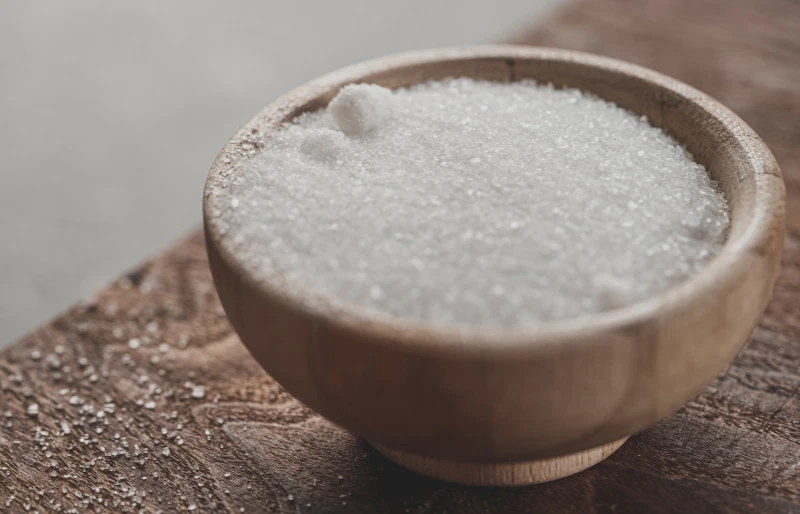
High Moisture
Though the amount of water in watermelon might seem appealing, it is important to note that hamsters do not handle a sudden increase in water from their food that well. In fact, most of their diet comprises dry matter, and they seem to do best when fed such foods and left to control their own water intake as necessary.
A sudden influx of water from watermelon might result in a hamster that’s dealing with an episode of diarrhea. Unfortunately, this is a very serious ailment for hamsters and requires urgent veterinary care.
If your hamster has diarrhea, you should not attempt to rehydrate them with plain water, as this will make things worse. You should seek a product made specifically for rehydrating hamsters, available from your pet store or veterinarian.
Diarrhea in hamsters should not be taken lightly, and if you notice diarrhea in your hamster, you should seek prompt professional care for them.
Hoarding
Hamsters are instinctive hoarders. They like to stuff food in their very large cheeks to transport it back to their favorite hiding places or den to consume later. Wild hamsters instinctively do this because the ability to hoard food lets them eat in peace without disturbances from predators or other threats. Pet hamsters may also demonstrate this habit.
Your hamster may take watermelon to their favorite hoarding spot. It is important to thoroughly check these spots to remove food items that spoil quickly once left outside. Rotting food in your hamster’s cage can lead to health issues for your pet.
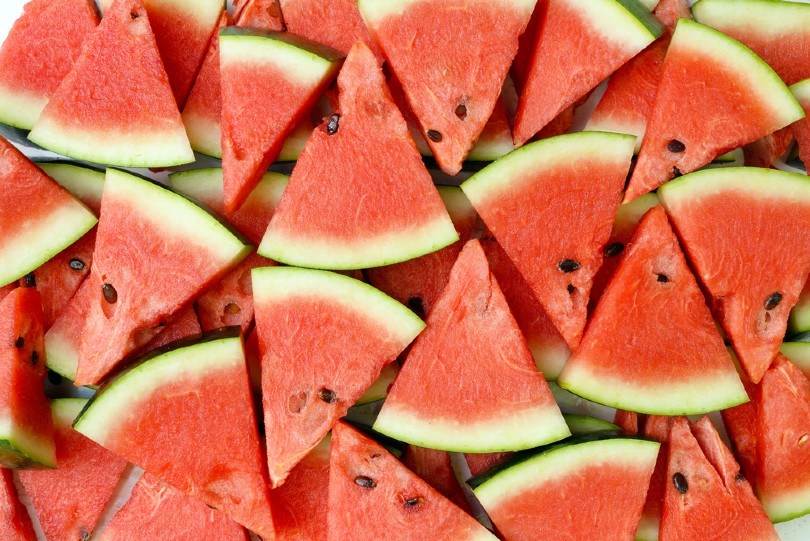
Cheek Pouch Issues
Hamster cheek pouches are large, but notably they don’t produce any saliva. Foods high in moisture can sometimes get trapped in their cheek pouches, leading to impaction and disease. This scenario requires prompt medical care.

What Other Fruit and Vegetables Can You Feed Hamsters?
As with watermelon, all of these options should only be fed to your hamster as the occasional treat.
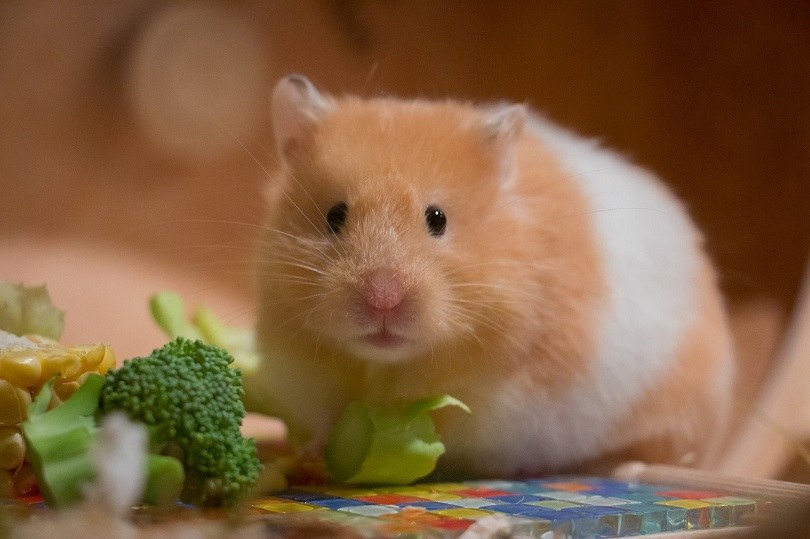

Summary
Fresh, pre-rinsed watermelon, when given in moderation, is perfectly safe and even beneficial for your hammy to consume. Never give your hamster large quantities of watermelon or watermelon juice.
If you want to treat your pet to a yummy and healthy goodie, try giving your hamster a tiny piece of watermelon today!
Featured Image Credit: piotr.ma, Shutterstock
